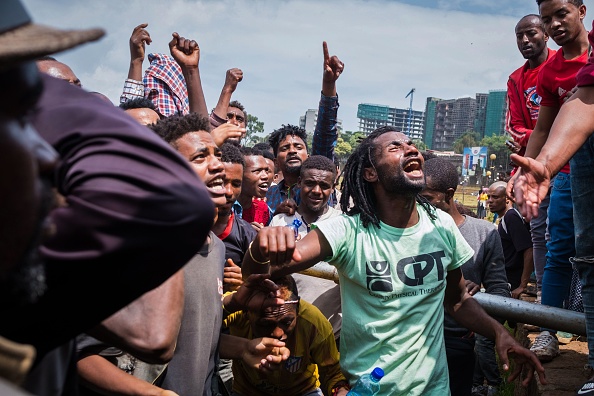
Ethiopians take to the streets to protest ethnic clashes

Several thousand Ethiopians demonstrated in the streets of the capital on Monday morning to protest ethnic-based attacks in the outskirts of the city in which more than 20 people died over the weekend.
Commissioner of the federal police Zeynu Jemal said that five people were killed in the Monday protests and between 20 and 25 people were killed in the weekend attack. He said that 700 suspects are in custody.
Victims of the attack and their families alleged the perpetrators are some groups of youths from the surrounding Oromia region.
Police fired tear gas to try to disperse the demonstrators, but people continued to flock to central Meskel Square. The demonstrators are calling on the government to take firm measures against the perpetrators.
“We demand justice,” some of the rally goers chanted when they passed by the offices of Prime Minister Abiy Ahmed, on the way to Meskel Square. “The government’s task is to protect its citizens, not to send condolences after they are butchered,” shouted a protester.
There were also protests in Arba Mich, the capital city of Ethiopia’s Southern region and the home area of many victims of Saturday’s attacks, in which demonstrators kneeled to urge justice.
For the first time since taking office in April, Ethiopia’s reformist leader Abiy has come under sharp criticism for what some see as his soft stance and people are calling on him on social media to toughen up and restore law and order. Some Ethiopians are also openly calling for a state of emergency to be put in place to avoid further killings.
For his part Abiy denounced the killings.
Ethnic-based attacks over land and resources are not new in this East African nation of more than 80 ethnic groups. But the severity of such attacks has grown in recent months. The U.N. Children’s Fund UNICEF said in August that as many as 2.8 million Ethiopians were internally displaced, mainly due to ethnic-based attacks in various parts of the country.






